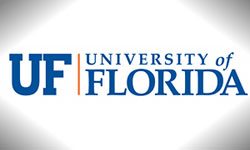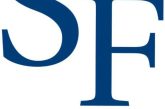
In its first round of spending allocated toward the state’s goal of pushing the University of Florida into a Top 10 public university category, the University of Florida will spend $15 million on up to 100 new faculty hires. The goal is to bring in professors who are well-known in their fields, show unusual promise or have unique expertise. The hope is to have the professors in place for the fall 2014 semester.
The announcement caps a months-long process that began this spring, when Florida lawmakers designated UF as “preeminent” and provided the university with $15 million annually for five years with the goal of elevating its academic and research performance.
UF provost Joe Glover said that of the first round of funding, $13.3 million has already been appropriated toward hires, and that the university is currently working on a second round of proposals.
“This all comes from the belief that we need to invest in high-quality faculty in specific fields,” he said. Glover said that the university solicited the deans of each college for investment proposals, then spent several weeks picking the fields that are closest to national prominence. Fields with the most potential “return on investment” became the highest priorities. “During the second wave, we will probably branch out and look for other schools with other opportunities,” he said.
The largest allocation of funds, $3.8 million, has been allocated to hiring for “big data” initiatives. “Big data” is a catch-all term for data production and analysis.
“We generate enormous amounts of data, and we need new ways to analyze all of that,” Glover said. “There are potentially enormous returns if that can be analyzed properly.”
He cited the medical and genetic fields as good examples of areas that could change dramatically if we could only sort and analyze its data more effectively.
“We’ve talked for years about personalized medicine and person-specific drugs,” he said. “But to get there, you need to analyze enormous amounts of data, including medical costs, medical records and insurer data.”
UF has recently made other investments in big data, most prominent of which is the HiPerGator supercomputer, which was launched in May.
“We have a professor who does simulations of drug trials by moving molecules in and out on the computer simulation to test whether a drug is worthwhile or not,” said Glover, who noted that HiPerGator reduced this professor’s computational time to eight hours when it used to take months. “Researchers can consider experiments that they couldn’t consider before.”
With 90 percent of today’s data created in the last two years alone, the timing is right for UF to establish a leadership role, UF President Bernie Machen said.
“The big data effort pulls together some of our best faculty from across the university at an auspicious moment for this new science,” he said. “With the right hires, we can be at the frontier.”
In a press release, Machen noted that UF expects to supplement the state preeminence dollars with its own privately raised funds. In August, the UF Foundation (the university’s fundraising arm) announced a “Preeminence Initiative” campaign to raise $800 million for more than 100 new endowed professorships or chairs.
“With the state’s support, and with the commitment of our alumni and friends, we are in a position to have a fairly dramatic impact on scientific and scholarly research at the university,” Machen said. “While that will enhance UF’s standing among top public universities nationally, it will also benefit the state economically, and ultimately, improve people’s lives and understanding of the world.”
Funded Proposals:
- Big data: $3.8 million
- Law: $250,000
- Cyber-security: $330,000
- Drug Discovery and Development: $900,000
- Food Security, Safety and Distribution Systems: $1.45 million
- Historical and Environmental Archaeology: $150,000
- Latin American Development: $300,000
- Materials Innovation: $260,000
- Mathematical Modeling of Diseases: $300,000
- Metabolomics: $900,000
- Mucosal Immunology: $500,000
- Neuroscience and the Brain: $2.2 million
- Global Health Initiative: $500,000
- Optimizing Early Childhood Interventions: $575,000
- Plant Genomics: $710,000




